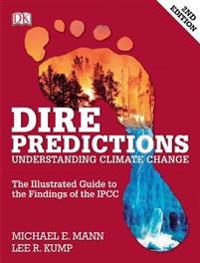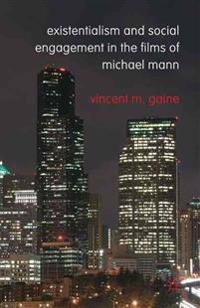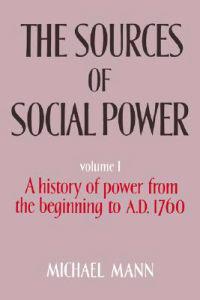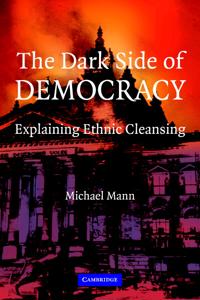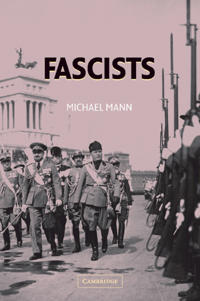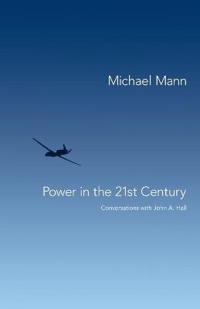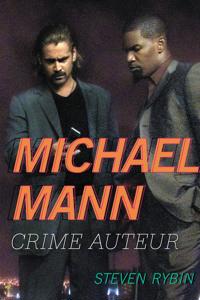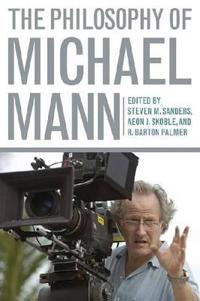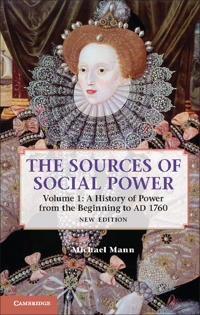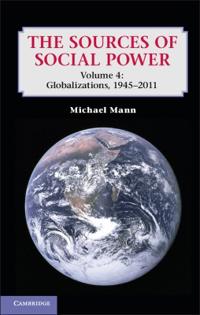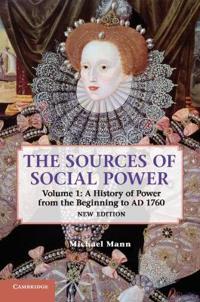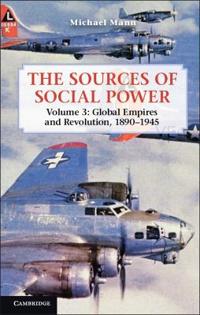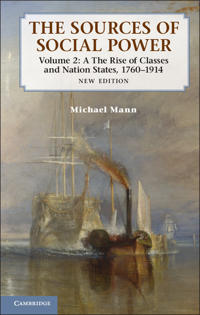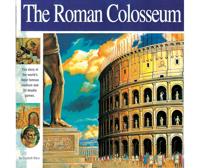Dire Predictions (Pocket)
avMichael Mann, Lee R. Kump, Michael Mann
ISBN: 9780133909777 - UTGIVEN: 2015-05Periodic reports from the Intergovernmental Panel on Climate Change (IPCC) evaluate the risk of climate change brought on by humans. But the sheer volume of scientific data remains inscrutable to the general public, particularly to those who may still question the validity of climate change. In just[...]
Existentialism and Social Engagement in the Films of Michael Mann (Inbunden)
avLloyd Alexander
ISBN: 9780230301054 - UTGIVEN: 201110Michael Mann has delivered some of the most intelligent and complex Hollywood films of recent decades, including Manhunter, Heat, The Insider and Collateral. This book argues that the films of this important director are best understood as existential dramas, engaging critically with existentialist [...]
Cinema of Michael Mann, The: Vice and Vindication (Inbunden)
avJonathan Rayner
ISBN: 9780231167284 - UTGIVEN: 2013-09-06The Cinema of Michael Mann (Häftad)
avJonathan Rayner
ISBN: 9780231167291 - UTGIVEN: 2013-08Michael Mann is one of the most important American filmmakers of the past forty years. His films exhibit the existential concerns of art cinema, articulated through a conspicuous and recognizable visual style and yet integrated within classical Hollywood narrative and genre frameworks. Since his beg[...]
The Sources of Social Power (Häftad)
avMichael Mann
ISBN: 9780521313490 - UTGIVEN: 198604This is the first part of a three-volume work on the nature of power in human societies. In it, Michael Mann identifies the four principal âsourcesâ of power as being control over economic, ideological, military, and political resources. He examines the interrelations between these in a na[...]
The Dark Side of Democracy (Pocket)
avMichael Mann
ISBN: 9780521538541 - UTGIVEN: 200410A new theory of ethnic cleansing based on the most terrible cases (colonial genocides, Armenia, the Nazi Holocaust, Cambodia, Yugoslavia, Rwanda) and cases of lesser violence (early modern Europe, contemporary India, and Indonesia). Murderous cleansing is modern, âthe dark side of democracyâ[...]
Fascists (Häftad)
avMichael Mann
ISBN: 9780521538558 - UTGIVEN: 200405Fascists presents a new theory of fascism based on intensive analysis of the men and women who became fascists. It covers the six European countries in which fascism became most dominant - Italy, Germany, Austria, Hungary, Romania and Spain. It is the most comprehensive analysis of who fascists actu[...]
Power in the 21st Century: Conversations with John Hall (Häftad)
avMichael Mann
ISBN: 9780745653228 - UTGIVEN: 2011-05-31Power in the 21st Century: Conversations with John A. Hall (Häftad)
avMichael Mann
ISBN: 9780745653235 - UTGIVEN: 201106Michael Mann is one of the most influential sociologists writing today. His three-volume work The Sources of Social Power , the third volume of which has just been completed, has transformed our way of thinking about power and has rewritten the history of human societies. No one interested in under[...]
Michael Mann (Inbunden)
avSteven Rybin
ISBN: 9780810890831 - UTGIVEN: 201304Michael Mann first made his mark as a writer for such television programs as Starsky and Hutch, Police Story, and Vegas. In 1981 he made his feature film directing debut with the James Caan thriller Thief, and in the 1980s he served as a writer and executive producer for the groundbreaking programs [...]
The Philosophy of Michael Mann
ISBN: 9780813144719 - UTGIVEN: 2014-03Known for restoring vitality and superior craftsmanship to the crime thriller, American filmmaker Michael Mann has long been regarded as a talented triple threat capable of moving effortlessly between television and feature films as a writer, director, and executive producer. His unique visual sense[...]
The Sources of Social Power: Volume 1, a History of Power from the Beginning to AD 1760 (Inbunden)
avMichael Mann
ISBN: 9781107031173 - UTGIVEN: 201209Distinguishing four sources of power in human societies - ideological, economic, military and political - The Sources of Social Power traces their interrelations throughout human history. In this first volume, Michael Mann examines interrelations between these elements from neolithic times, through [...]
The Sources Of Social Power: Volume 2, The Rise Of Classes And Nation-states, 1760-1914 (Inbunden)
avMichael Mann
ISBN: 9781107031180 - UTGIVEN: 2012-09-24This second volume of Michael Mann's analytical history of social power deals with power relations between the Industrial Revolution and the First World War, focusing on France, Great Britain, Hapsburg Austria, Prussia/Germany and the United States.[...]
The Sources of Social Power: Volume 4, Globalizations, 1945-2011 (Häftad)
avMichael Mann
ISBN: 9781107610415 - UTGIVEN: 201212Distinguishing four sources of power - ideological, economic, military and political - this series traces their interrelations throughout human history. This fourth volume covers the period from 1945 to the present, focusing on the three major pillars of post-war global order: capitalism, the nation[...]
The Sources of Social Power: Volume 1, a History of Power from the Beginning to AD 1760 (Häftad)
avMichael Mann
ISBN: 9781107635975 - UTGIVEN: 201209Distinguishing four sources of power in human societies - ideological, economic, military and political - The Sources of Social Power traces their interrelations throughout human history. In this first volume, Michael Mann examines interrelations between these elements from neolithic times, through [...]
The Sources of Social Power: Volume 3, Global Empires and Revolution, 1890-1945 (Häftad)
avMichael Mann
ISBN: 9781107655478 - UTGIVEN: 201209Distinguishing four sources of power - ideological, economic, military and political - this series traces their interrelations throughout human history. This third volume of Michael Mann's analytical history of social power begins with nineteenth-century global empires and continues with a global hi[...]
The Sources of Social Power: Volume 2, The Rise of Classes and Nation-States, 1760-1914 (Häftad)
avMichael Mann
ISBN: 9781107670648 - UTGIVEN: 201209Distinguishing four sources of power in human societies - ideological, economic, military and political - The Sources of Social Power traces their interrelations throughout human history. This second volume deals with power relations between the Industrial Revolution and the First World War, focusin[...]
Der Mann, der kein Mörder war (Pocket)
avMichael Hjorth, Hans Rosenfeldt
ISBN: 9783499256707 - UTGIVEN: 20130102Der Mann, der kein Mörder war (Häftad)
avMichael Hjorth, Hans Rosenfeldt
ISBN: 9783862520190 - UTGIVEN: 201111De stora slagen : avgörande strider som format världshistorien (Inbunden)
avMartin J Dougherty, Michael E Haskew, Christer Jörgensen, Chris Mann, Chris McNab, Michael Neiberg, Michael Pavkovic
ISBN: 9781407527000 - UTGIVEN: 200809De stora slagen är en tillgänglig och mycket välillustrerad introduktion till 30 av historiens mest berömda slag, däribland Marathon, Hastings, Agincourt, Saratoga, Trafalgar, Waterloo, Gettysburg, Somme, Stalingrad, invasionen av Normandie och många fler.
Varje slag illustreras med[...]The Roman Colosseum (Pocket)
avElizabeth Mann, Michael Racz, Elizabeth Mann
ISBN: 9781931414173 - UTGIVEN: 200609Describes the building of the Colosseum in ancient Rome, the training of its gladiators, and the different types of combat they fought in its arena.[...]
De stora slagen (Inbunden)
avChrister Jörgensen, Martin J. Dogherty, Michael E. Haskew, Chris Mann, Chris McNab, Michael Neiberg, Michael Pavkovic
ISBN: 9789187161216 - UTGIVEN: 201211De stora slagen är en mycket välillustrerad introduktion till 30 av historiens mest berömda slag, däribland Marathon, Hastings, Waterloo, Stalingrad och många många fler.
Varje slag illustreras med en taktisk fyrfärgskarta som gör att läsaren snabbt får en överblick över drabb[...]Death in Venice (Häftad)
avThomas Mann, Michael Cunningham
ISBN: 9780060576172 - UTGIVEN: 200505The world-famous masterpiece by Nobel laureate Thomas Mann -- here in a new translation by Michael Henry HeimPublished on the eve of World War I, a decade after Buddenbrooks had established Thomas Mann as a literary celebrity, Death in Venice tells the story of Gustav von Aschenbach, a successful bu[...]

